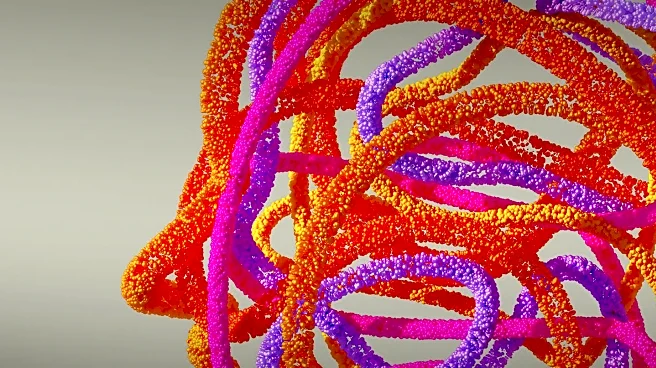What's Happening?
Researchers at Tokyo Metropolitan University have discovered a method to disrupt early tau protein clusters, preventing the formation of fibrils associated with Alzheimer's disease. By altering sodium chloride levels in the presence of heparin, they were
able to dissolve these precursor clusters, suggesting a new therapeutic direction for neurodegenerative conditions. This approach focuses on stopping the precursor stage before harmful structures develop.
Why It's Important?
This research offers a promising new strategy for Alzheimer's treatment by targeting the early stages of tau protein aggregation. It shifts the focus from breaking apart final fibrils to preventing their formation, potentially influencing the development of therapies for other neurodegenerative diseases. The study highlights the interdisciplinary approach, using polymer physics concepts to address complex medical challenges.
















